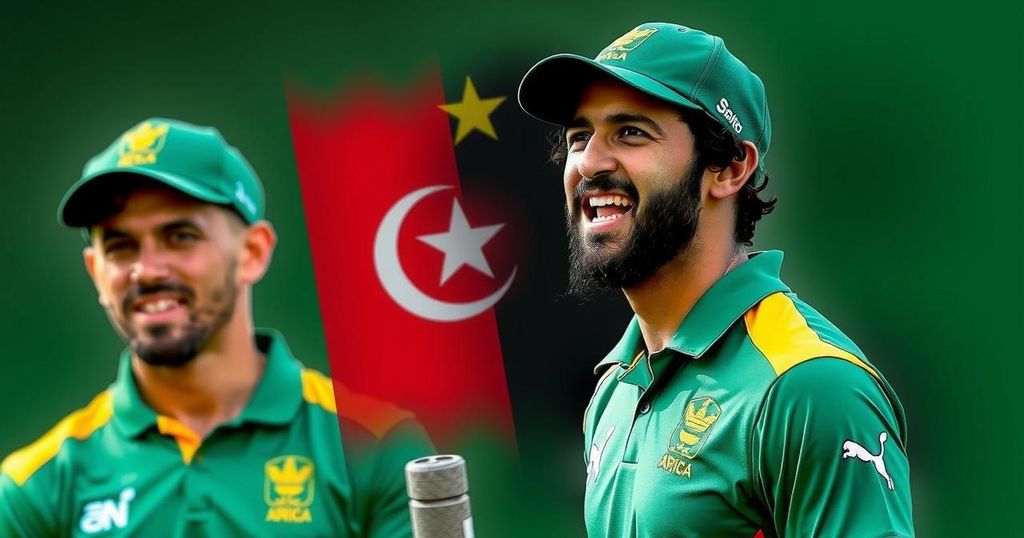Cricket South Africa advocates for a united front against Afghanistan ahead of the Champions Trophy match, following significant calls for a boycott due to the Taliban’s repression of women. CSA is collaborating with the ICC and expects coordinated action for the advancement of women’s cricket in Afghanistan. This issue impacts participation and ethical considerations in international cricket, particularly regarding the Taliban’s treatment of women since 2021.
Cricket South Africa (CSA) has advocated for a “unified and collective approach” alongside the England and Wales Cricket Board in response to calls for a boycott of the upcoming Champions Trophy match against Afghanistan. This request follows a letter signed by over 160 UK politicians, urging the ECB to withdraw from the match as a protest against the Taliban’s oppressive regime affecting women’s rights. CSA, which has also received communication from former MP Lord Peter Hain, believes that a coordinated action involving all International Cricket Council (ICC) members would be more effective in impacting positive change within Afghanistan.
CSA President Rihan Richards emphasized that the organization is committed to engaging in constructive dialogue with the ICC and other cricketing nations to advocate for women’s cricket in Afghanistan and effect meaningful change. Since the Taliban’s resurgence in power in 2021, participation by Afghan women in sports has been severely curtailed, leading many female players to flee the country for safety.
The ICC stipulates that full membership requires the establishment of women’s cricket teams and pathways. However, the Afghan men’s team continues to participate in ICC events without sanctions despite the absence of women’s cricket structures. CSA has labeled the suppression of women’s rights in Afghanistan as “abhorrent”, asserting that women’s cricket merits equal acknowledgment and resources.
As the tournament, hosted from February 19 to March 9 in locations such as Pakistan and Dubai, approaches, South Africa is set to face Afghanistan on February 21 in Karachi. South Africa’s Minister of Sports, Gayton McKenzie, has expressed his support for a boycott against playing Afghanistan due to the ongoing injustice toward women in sports, underlining the moral imperative of addressing such issues in global cricket discourse.
Cricket South Africa’s position stems from heightened global concern regarding the Taliban’s treatment of women since its return to power in 2021. The recent communication from British politicians is part of a larger movement advocating for human rights, particularly focusing on women’s rights in Afghanistan. The International Cricket Council (ICC) has specific regulations that condition full membership on the existence of women’s cricket teams; yet the Afghan men’s team continues to compete internationally. This situation raises questions about the effectiveness of current governance structures in ensuring equitable treatment for women’s cricket, especially amidst calls for ethical considerations in sporting engagements.
In summary, Cricket South Africa has joined an international call for a collective response to the Taliban’s severe restrictions on women’s rights in Afghanistan, advocating for a boycott of the Champions Trophy match. The organization emphasizes the need for a coordinated approach within the ICC to uphold women’s cricket and drive change. With the tournament approaching, this discussion highlights the intersection of sports, ethics, and human rights, presenting significant implications for the future of cricket diplomacy.
Original Source: www.bbc.com






